Trading’s trending these days and all sorts of assets are fair game, apparently. The Foreign Exchange market continues its popularity and top position as the most high-liquidity market in the world. So, while more people are starting to trade crypto, Forex continues to have its share of traders. Naturally, becoming a Forex trader is as easy as starting a live account and spending some money on this or that currency. Then again, it’s nothing as simple as that. You want to be a Forex trader, but not just any trading will do. Most Forex traders tend to quit after a couple of months — you don’t want to repeat their mistakes and impulsive behavior. So, what should you do? Answering that question is precisely why I wrote this article. In this guide, I’ll show you how to become a Forex trader by following 8 simple steps. Before that, however, we should go over some details about what Forex trading is and what traders do exactly.
What is a Forex Trader?
First off, you should realize what it is you’ll be trading. The Foreign Exchange (Forex for short) is a series of international markets for buying and selling fiat currencies. That means things like the United States Dollar (USD), the Euro (EUR), and so on. Unlike the stock market, Forex is decentralized, meaning there is no single center where these trades happen. There are banks and financial institutes around the world that function as hubs for these markets. That’s actually why Forex is a 24-hour market while the New York stock market, for example, is only available for 8 hours every weekday; therefore, it’s crucial to find the best trading time. So, for traders who are not exactly in tune with the usual working hours of this or that stock market, Forex trading provides a good opportunity.
Trades take place when you settle on a currency pair (like the USD/EUR) and spend one currency (let’s say dollars) to buy another (let’s say Euros) at an exchange rate. Of course, that exchange rate is highly volatile, going up and down with different factors affecting the financial market. It’s because of this volatile exchange rate that you can make a profit by trading currencies on Forex markets. Suppose, for example, that you start with some dollars. You exchange each dollar for 0.9 Euros (0.9 is the exchange rate — when it’s less than one, it means the currency you’re trying to buy is more expensive than the one you’re selling). So, in this example, you spend 10 USD and buy 9 Euros. Only, a few hours later, there is a financial crisis of some kind and the value of the Euro temporarily. Now every dollar goes for 0.7 Euros and that means it’s a good time to profit on that investment. You sell those 9 Euros and now you have about $12.8 dollars. Yay! Multiply for bigger numbers and rinse and repeat for those nice profits. Well, you get the idea.
What does a Forex Trader Do?
Of course, the most obvious answer to that is the correct one. Forex traders trade assets on the Foreign Exchange market. But what does that mean? And are there different ways to go about it? These are the vital questions I’ll be answering in this section.
We had a basic look at the Forex market and how it works above. So, now we know how trading works, but that knowledge is too broad and general to give you a valid understanding of the industry. It’s like saying cheese is made from milk, which is not going to help anyone with anything. So, to get into the heart of things and be more specific, let’s take a look at some of the different activities Forex traders engage in. In the end, they are different forms of trading but their differences actually determine how they trade and how likely they are to succeed. So, it pays to know more about them if you want to learn how to become a Forex trader.
1. Day Trading
One of the more common types of trading, day trading, involves buying and selling an asset on all the same day. To be more technical about it, it involves positions you hold or liquidate all during the hours of a single market day. A day trade may not be a great name since it can even take less than an hour, but the average day trading takes a few hours between acquisition and liquidation, which is to say between the buy and sell orders. To become a successful day trader in Forex markets, you must be able to do different types of market analysis, including technical and financial analysis.
2. Scalp Trading
A scalp trade is over and done within a matter of seconds or minutes at the most. The basic idea behind scalp trading is to make a small amount of profit on each short trade, with all these micro-profits stacking up to an acceptable sum at the end of the day. They call this a cumulative type of trade because it involves a lot of small trades you can put together for the real profit to emerge. Now, since you want to keep your scalp trading as fast as possible, it’s best to keep it for the times and currencies with a lot of liquidity. Scalp trading is a favorite with new Forex traders, and it’s always a good idea to give it a try to see if it’s for you.
3. Investing or Position Trading
Of course, there are other types of trading that take up somewhere between a day and a week (they’re called swing trading), but for this intro, I’m going to skip them and talk instead about position trading, which can also be called investing. In position trading, you place a buy order or set a position and settle in for the long-term. That means it may be weeks or even months before you liquify those acquisitions. Compared with other trading types, position trading requires a more in-depth understanding of the market and superior analytical skills. Investing is just like trading except you’re not necessarily thinking about liquidating, even in a year or two. It’s more of a value preservation strategy, meaning it’s good for making your money keep its value through time. One of the ways Forex can help you with investing is to go for a “safe haven” asset like gold. You can learn more by reading my article on how to trade gold on Forex.
4. Automated Trading
This final type of trading is not technically something traders do themselves — as the name shows, it’s automated. That refers, of course, to artificial intelligence and its applications in finance. Forex robots or Expert Advisors (EAs) are intelligent algorithms designed to conduct very short scalp trading for micro-profits. Being much, much faster in deciding on the currency pairs and placing their buy/sell order, EAs can take trading to a new level. So, if you can find the right algorithm, you can simply kick back and relax while your bot rakes in the profits.
Available Jobs for Forex Traders
Most traders think that they should always be at risk. They think they need to put all their money into trading and trade all day, all night, in order to make money. This is where they lose the game.
Being a trader does not mean that you need to work and trade all the time just to put all your investment at risk. So what is the alternative? Well, you can work for a company, get a fixed salary, and enjoy your life while making reasonable money doing what you love.
If you are unsure where to head to find suitable jobs for you, I have something for you here. After struggling with lots of fruitless searches and a long period of confusion and anxiety, I found a website that offers the best trading jobs. You can find a complete list of jobs suitable for you on Remote forex trader jobs by Jooble.
How to Become a Successful Forex Trader
Choose a Broker
Okay, so the journey to becoming a successful Forex trader starts by finding the right broker. Unlike crypto, you definitely need a broker to set up a trade, and it’s actually very easy to find one. The main thing about brokers is their location. Most of the good brokerages are in the United States and Western Europe. If you’re far away from your broker, you’ll experience high latency, meaning a delay between your buy/sell order and the broker’s executing it. That causes something called slippage, which is basically a difference in prices at the time of the execution compared to what they were when you ordered the transaction. The higher the latency, the more there is a chance of slippage. So, if you’re planning on scalp trading or automated trading, you can’t afford to not take the next step.
Get a Forex VPS
Unless you live in one of the financial hotspots like New York City or Frankfurt, you have little chance of low latency and slippage. Well, at least without getting a Forex VPS. A Forex VPS is basically an affordable way of setting up a remote computer to run your trading platform on. The primary reason why a Forex VPS is indispensable to successful trading is the distance to your favorite brokerage. So, with 14+ strategic server locations around the globe, a Forex VPS provider like Cloudzy is ideal for starting your career as a Forex trader.
 A VPS with no limitation
A VPS with no limitation
Get a Python VPS to easily reach its full potential and a high-performance, low latency server that you can use to develop, test, and, most significantly, deploy Python web apps.
Go for Python VPSAutomate your Trading
Automated trading is a very fast-growing segment in all manner of trading, including crypto, and of course, Forex. If you want to include automated trading, you’re going to need to read our article on the best Forex bots as well as this guide on how to become a Forex trader. For now, let me just say that you should search long and hard to find the perfect Expert Advisor; otherwise, you risk losing your money or not making much of a profit in a best-case scenario.
Practice on a Demo Account
Many popular brokers offer demo accounts when you sign up with them. A demo forex account includes a certain amount of money that you’re allowed to trade however you want. Of course, it’s not real money and you won’t be able to liquidate it even if you do make some nice profits using it. It’s intended to give you a tool to learn the market and trading strategies before committing your own money. A lot of starting traders make the mistake of starting with their own money only to lose it because they’re not at all experienced. That turns many potentially successful traders away from the game. So, if you want to know how to become a Forex trader, here’s one vital tip: don’t put in real money till you have the basics down.
Pick a Currency Pair
There are a lot of currencies in the world, which means you can choose to trade on one of a large number of currency pairs in Forex. However, that does not mean you should. Despite how attractive it may be to think about an intriguing, profitable trade on little-known currencies, it’s much wiser to stick to the most popular currency pairs — at least at the start. Perhaps the most obvious choice is the EUR/USD pair, which lets you trade Euros for Dollars. Of course, the Japanese Yen (JPY) is also a popular currency. A more popular currency is more easily liquified, meaning there is always demand for it when you decide to sell. So, it makes sense to stick with really well-known currency pairs.
Use Forex Signals
Here’s an old recipe for success: “fake it till you make it.” It doesn’t sound exactly nice but sometimes it makes sense. So, when you’re starting out, one way to ensure better profits is to simply copy the choices of more successful traders. But how will you know what they’re doing? That’s where Forex trading signals come in. There are Forex signal providers that send out alerts or messages that tell you your best shot at the current market. You can use our list of the best Forex signals to learn more about Forex signals and choose a provider that works for you.
Choose a Trading Type
I introduced 4 different trading types above, and it’s much better to pick one and stick with it for a while. If you’re only starting and want to know how to become a Forex trader without going through a lot of hassle and anxiety, I suggest you stick to scalp trades (or scalping). Make sure to stick to the busiest hours of the market day and focus only on high-liquidity currency pairs. That way you can liquidate your assets in a moment, which is essential for scalping to work.
Do your Homework
Like with any other type of trading, a professional Forex trader needs to know about the market they’re going to work in. That means becoming really familiar with all sorts of analysis methods. Naturally, that includes technical analysis, but you also need to stay on top of world news, geopolitical events, and a lot of other factors if you want to be a super-successful Forex trader. So, better get used to doing your homework, because that’s going to be a non-negotiable part of your job as a trader.
To effectively pursue automated forex trading, it is crucial to conduct thorough research on the best service providers available for automated trading. By doing so, you can identify the most suitable options that align with your trading strategy.
How Much Do Forex Traders Make in a Year?
Forex trading can be a very lucrative job, with payouts that can change your life around. It can also be a quick way to lose all your money. For most traders, however, the truth is somewhere in between. Let’s take a look at what you can expect to pull in — who knows, you may decide you don’t need to learn how to become a Forex trader after all.
To really answer this question at any length needs a lot of time since it really depends on a lot of factors, like the expectancy of your trading strategy, your risk appetite, trading type, frequency, and a lot more. Perhaps more than anything, however, the bottom line depends on the money you put in and the type of strategy you pick.
Let’s leave aside leveraging and other forms of indirect trading aside, for now. It’s fair to say that with a good trading strategy and some starting capital, you could be making between 5-15% profits per month. That’s a really great number, and the more capital you put into it, and the more trades you do, the more you’ll earn. I guess the old expression about having to spend money to make money is as true as ever. Some of the money you need to spend is the capital you put up, but there are other costs. You should be ready to invest in your learning — buy books, courses, maybe even sign up for a few actual classes. You also need to spend a small amount on a Forex VPS. Cloudzy provides high-performance Forex VPS solutions located at the hubs of global finance for very affordable rates. So, that, at least, won’t put much of a dent in your budget.
So, it really does come down to you and how you handle your trading.
Skills a Forex Trader Needs
So, now that we have covered almost every other aspect of how to become a Forex trader, you may be wondering just what it takes. Do you have the skills to become a successful trader? Unlike becoming a writer or musician, however, the skills you need for Forex trading are straightforward.
1. Know-How
As with everything else, you need to know what you’re doing if you want to do it right. In Forex trading, that’s more true than usual, because the markets and what you can do with them are varied and complex. Without true know-how, you won’t be able to move past the beginner levels. That’s why part of how to become a Forex trader is to be constantly learning new stuff.
2. Patience
A chief skill you’re going to need is patience. To be more specific, you need to be able to avoid impulsive or emotional decisions. There are a lot of ways impulses and emotional decision-making can ruin your trading game but only one way to stop them, and that’s being really patient. You should take your time and act only when there is a rational reason to act.
3. Experience
Experience is a lot like know-how, but it’s much more personal. You can’t read about experiences, you have to put in the time and actually do the work to gain experience. That’s one of the biggest advantages of demo accounts. They let you gain experience in the real market without risking your money for it. So, make sure to make that experience count.
Give yourself a better chance at the Forex market by hosting your trading platform right next to your broker. Want to Improve your Trading?
Want to Improve your Trading?
How to Become the Best Forex Trader You Can Be
We have gone over all the major steps to learn how to become a Forex trader. Of course, becoming a good trader in the largest financial market in the world can take time, and there’s also the fact that some steps are more vital than others. For example, picking scalping as your trading strategy may be all good, but if you can’t get the minimal latency/slippage you need for it to work, you can forget about the profits. So, getting the right tools for the job is critical, and one of the most important tools is a Forex VPS. As I’ve mentioned before, a Forex VPS will get you right up close to your broker, so you can select whatever broker you think is best without worrying about their distance from you. Cloudzy’s Forex VPS is also highly reliable — unlike your laptop or PC, it doesn’t break down or crash all the time; it doesn’t get disconnected or run out of power. Plus, with the latest NVMe storage, DDR4 RAMs, and 1 Gbps bandwidth, our Forex VPS plans are going to run your MT4 platforms faster than ever.
FAQ
What skills do I need to become a Forex trader?
Well, aside from a knack for technical analysis, the most vital skills for forex traders are patience, rationality, and learning from experience. A Forex trader’s worst enemy is impulsive decisions and you need to be patient and rational to resist these impulses. You must also hone your instincts and analyses through experiences you gain trading. The rest will come to you if you commit and make an effort.
How much should I invest in Forex at the start?
Ideally, nothing! One of the most common reasons many people tend to leave Forex trading within a month is that they invest a lot of money in their trading right from day one. Of course, you don’t know anything about anything then, and making mistakes is a given. So, losing that money is almost a guarantee. So, the wisest choice here is to spend a few months on demo accounts. Once you’re sufficiently confident, you can start trading for real.
Can I run MT4 from my PC?
Technically, yes, you can. But that doesn’t mean you should. Unless you have a very powerful PC with high bandwidth and live in a major financial hub like New York City or Frankfurt, you’re better off with running MT4 on a Forex VPS.
Can I trade anything other than currencies on Forex?
Actually, yes. Forex is mainly a currency trading platform but it also allows you to trade in gold and silver. Many traders consider trading gold in Forex when there is some uncertainty in the market regarding more volatile assets.
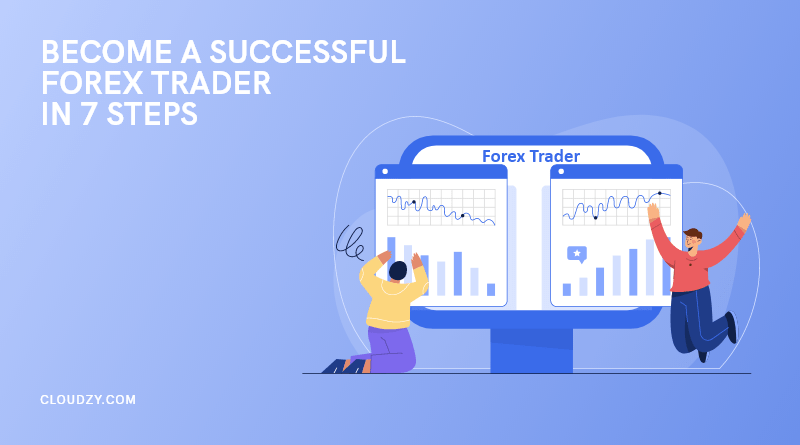
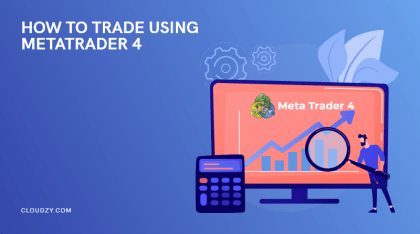
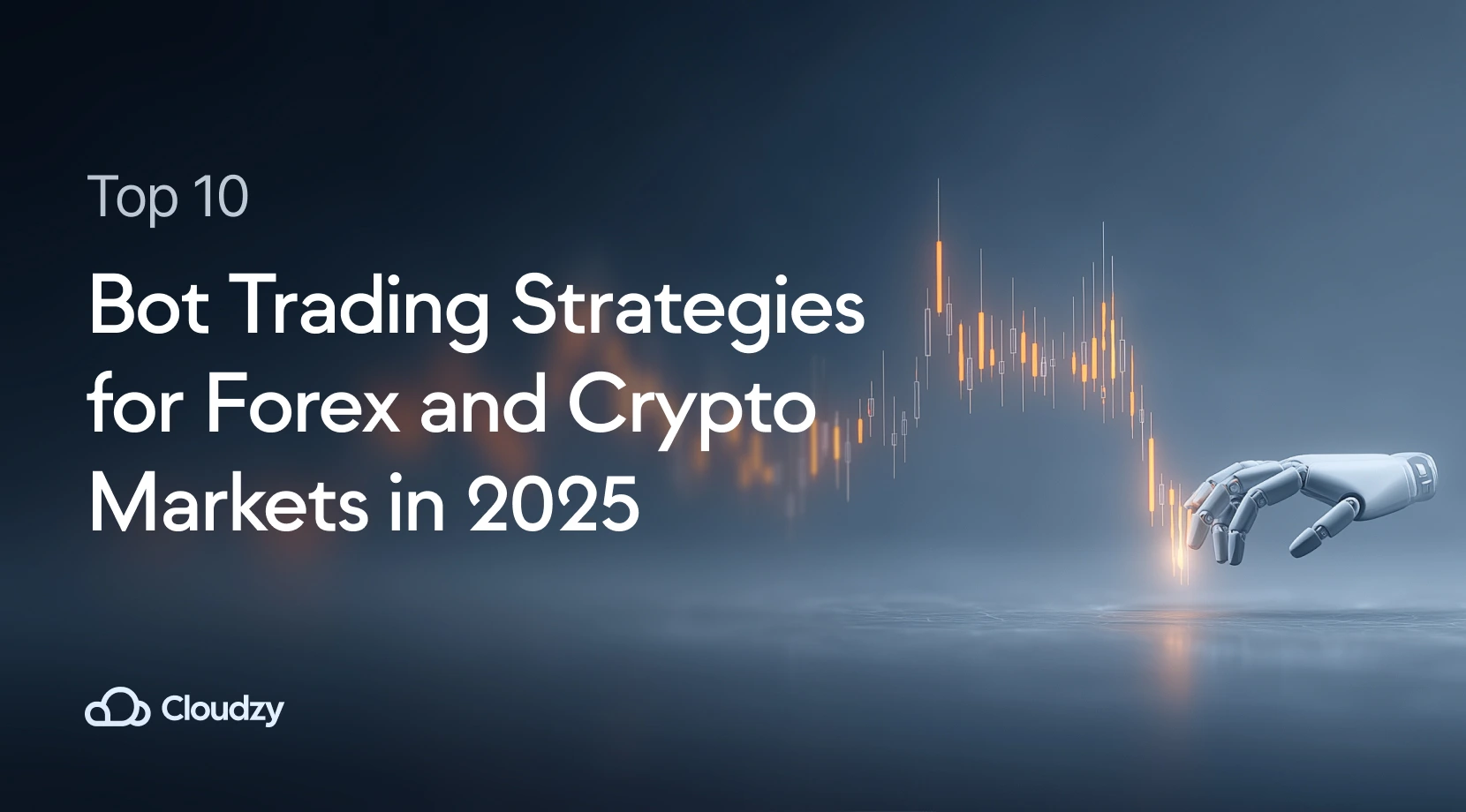
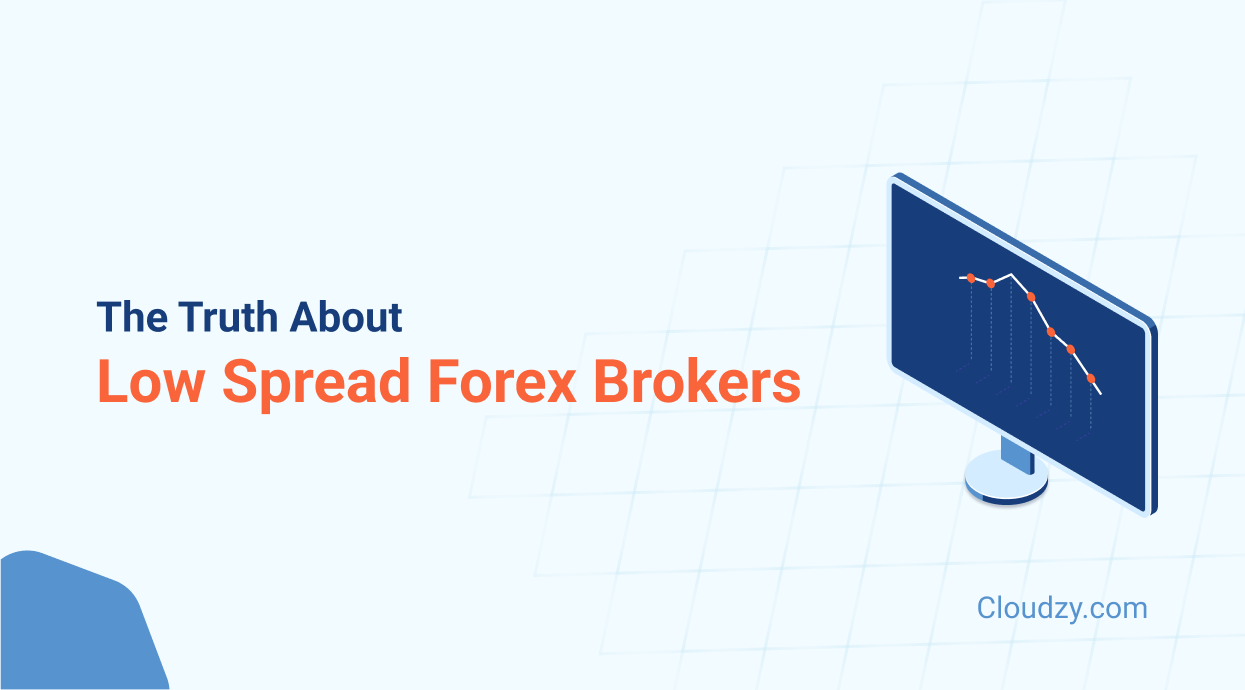
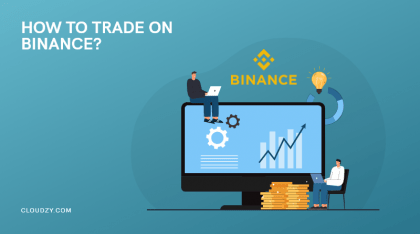



2 thoughts on “Become a Forex Trader👨💻|8 Tips for Starting Your Forex Journey”
Such a great information. This is really very helpful for bloggers
Such a great information. This is really very helpful for bloggers